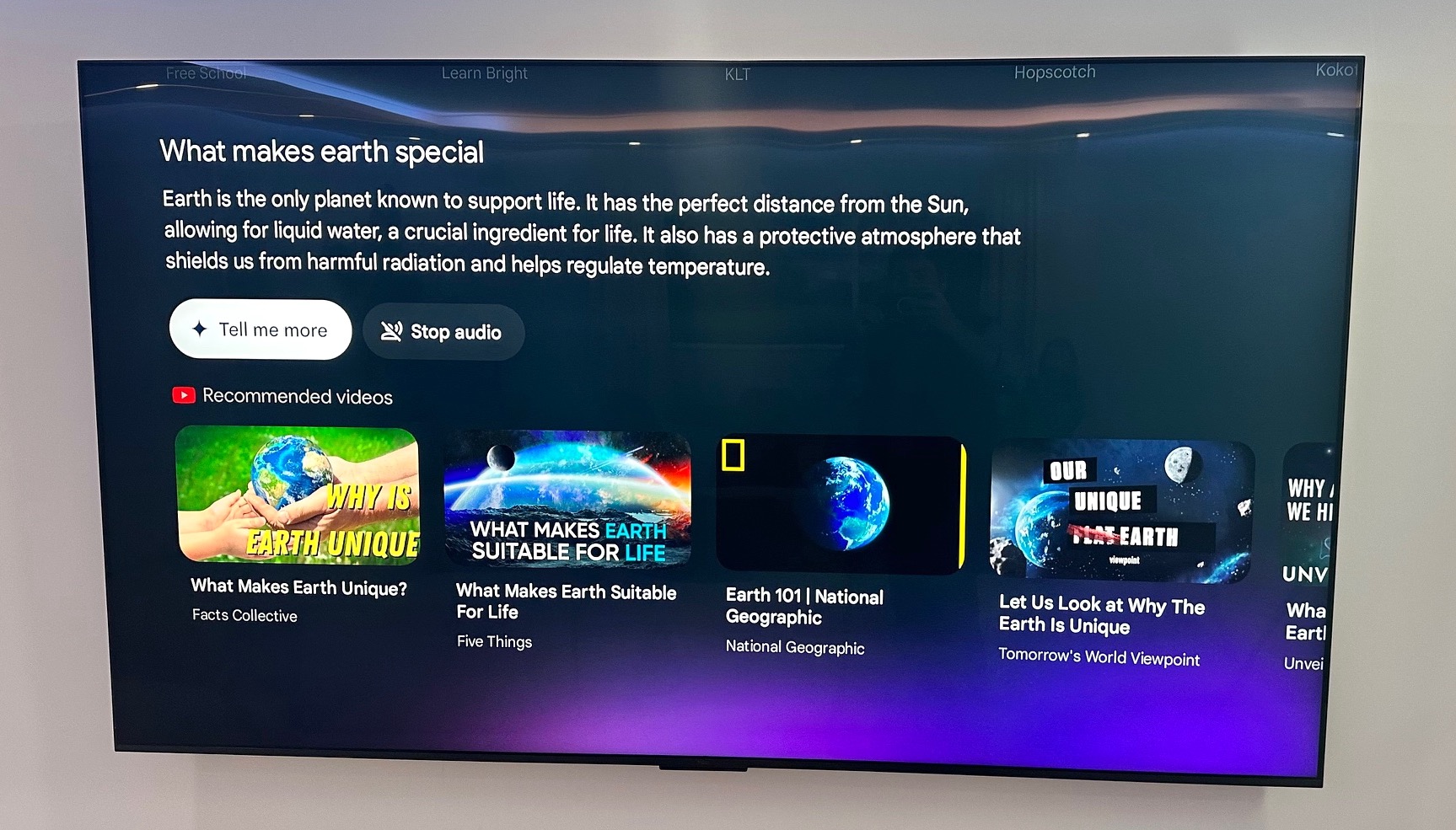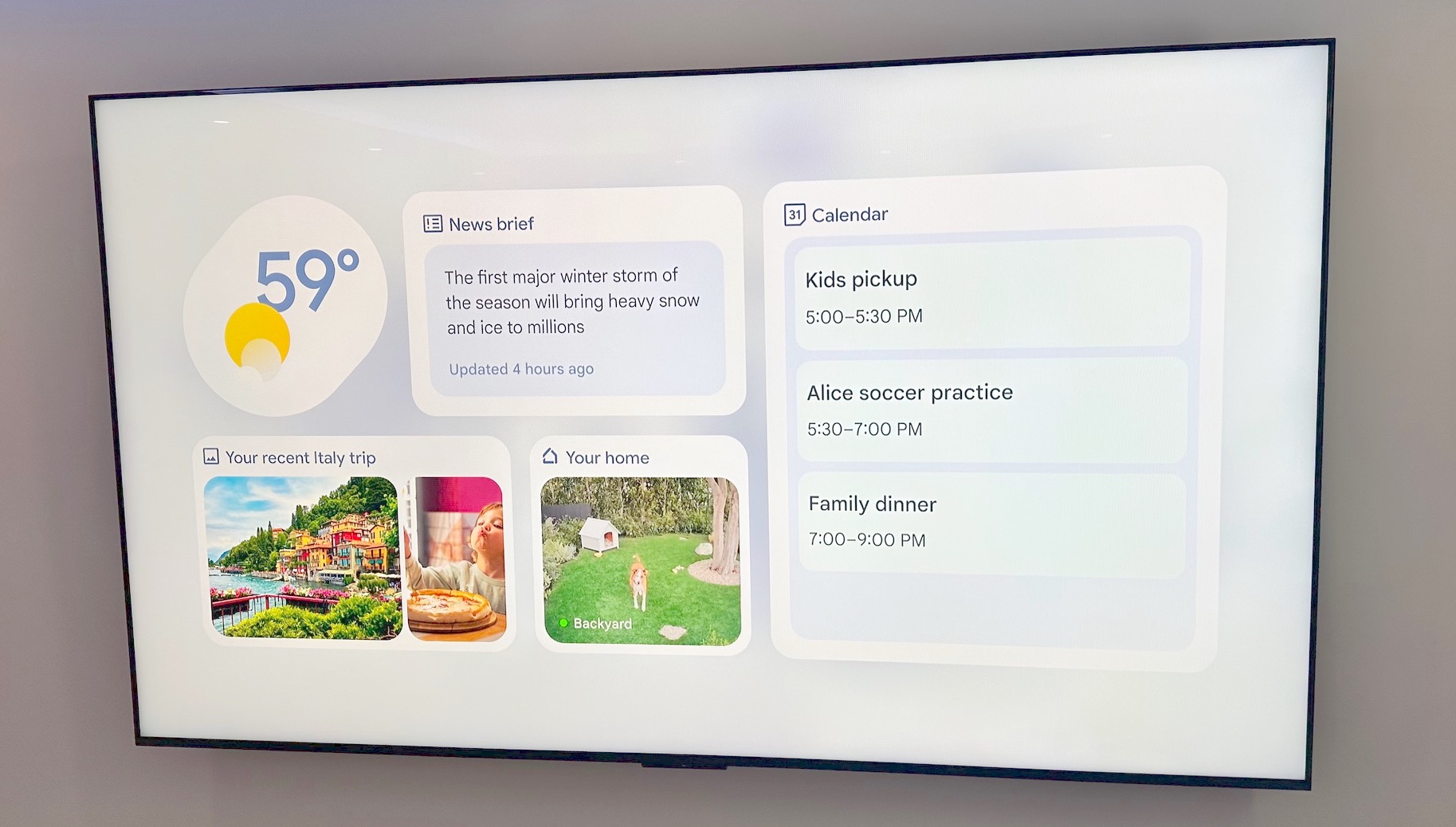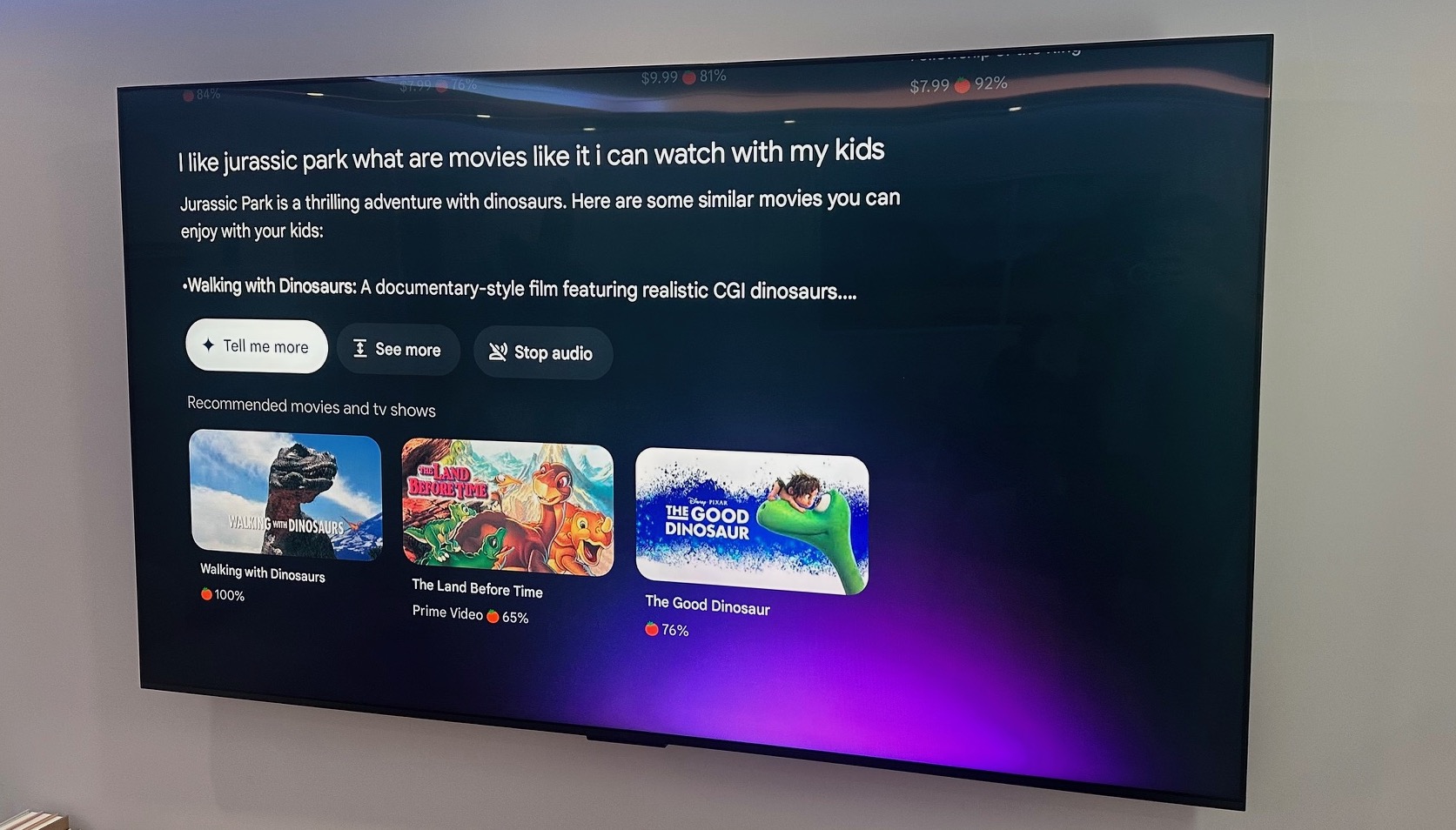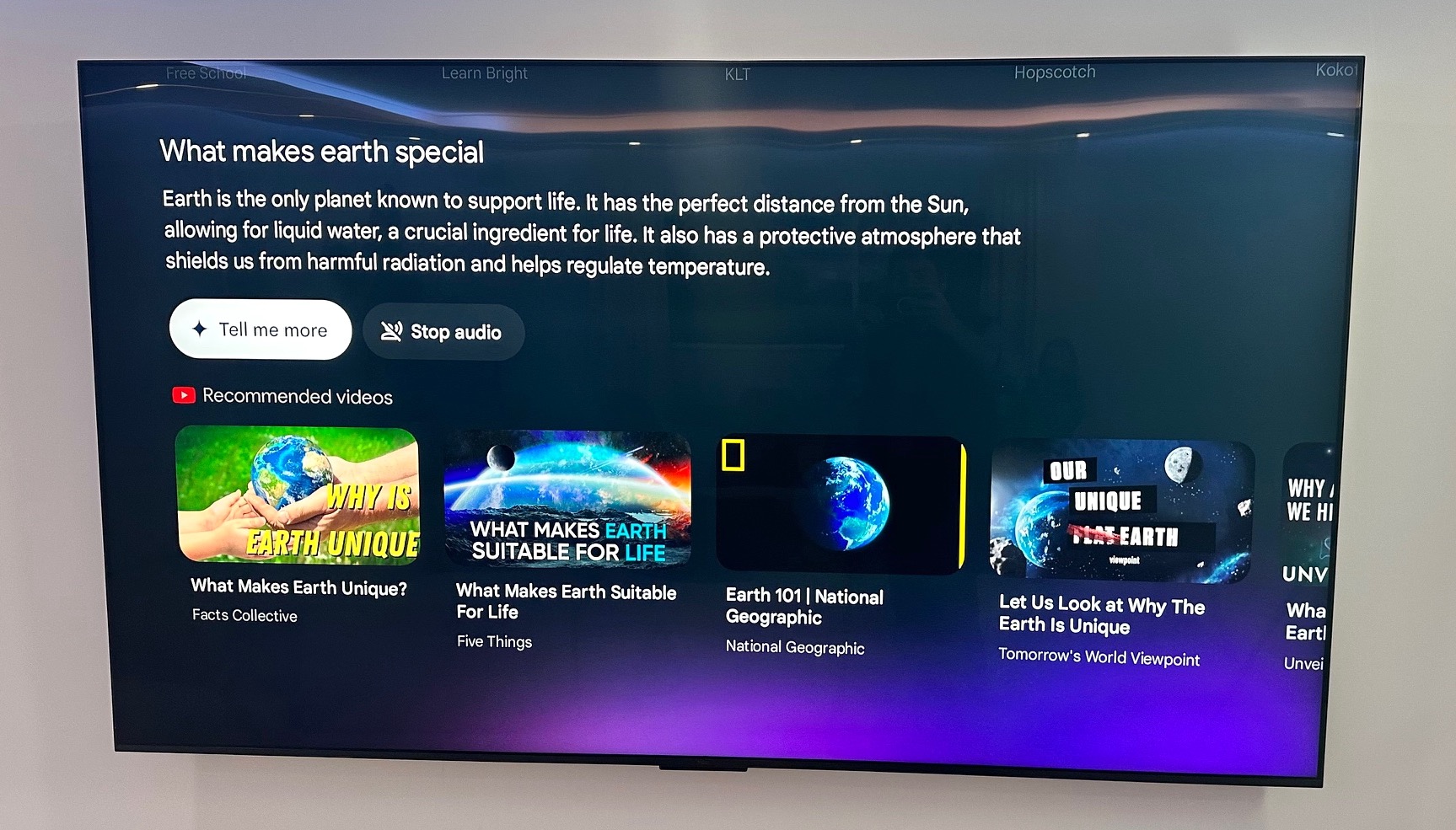I just tried Gemini AI on Google TV and you may never use your remote again
Google is bringing its AI to Google TVs this year; here's how it works

After debuting Gemini AI on the Google TV Streamer last year, Google is further integrating its artificial intelligence into its streaming platform this year, which should make your TV more useful than simply watching the best movies on Netflix.
I was able to get an early preview of it at CES 2025 to see how it will work in your home, how it could change how you use your TV, and when you'll be able to try it out for yourself.
The TV I saw was a demo unit with a small module along the bottom edge which has a motion sensor and microphones. When no one's in the room, the TV screen will be off, but if you get within, say 15 feet of the screen, it will turn on and display artwork or some other type of background image. A representative said that in its final iteration, you'll be able to adjust the distance at which the TV reacts to movement.

Once you get nearer to the TV, the screen will change to display such things as the weather, your calendar, and thumbnails of your photo albums. From here, you can move right into the traditional Google TV interface.

While the Google TV interface currently draws on Gemini to provide summaries of shows, you can now use natural language to ask for pretty much anything you like.
In my demo, I said something to the effect of "What are movies like Jurassic Park that are appropriate for my kids?" Gemini then gave me a few options such as "The Good Dinosaur" and "The Land Before Time."
Beyond watching movies, Google also demonstrated how you could use Gemini AI to control your smart home devices, such as asking it to dim your lights of change your smart thermostat temperature.
Sign up to get the BEST of Tom's Guide direct to your inbox.
Get instant access to breaking news, the hottest reviews, great deals and helpful tips.
This is something already baked in to an extent, but with the Gemini update, if someone rings your video doorbell, you can ask Gemini to deliver an automated response if you can't get to the door.

Additionally, you could also use Gemini for educational purposes; the example we tried was "explain what the solar system is to a third grader." Gemini returned an age-appropriate answer, and then also provided links to some relevant YouTube videos.
Google will also be rolling out a feature tentatively called News Brief; when you ask Gemini for the briefing, it will pull the top headlines of the day from reputable news sources. Be warned: the summaries can be pretty grim depending on the day.
Gemini AI will be added to the Google TV interface over the course of the year, so if you have a Google TV device, you'll be able to access many of these features by using the Assistant button on your remote. However, the TVs with the microphones and ambient sensors built in — which will be made by TCL and Hisense — won't come on the market until the end of 2025.
It's only natural that Google would want to extend its AI into all of its devices, and given the popularity of its TV interface, is a logical extension. Given the volume of shows and movies, being able to use Gemini to more easily search for something to watch will — should — definitely be helpful.
I'm not sure if I'd be comfortable with my kid going to the TV every time they have a question about the universe or anything else for that matter; if Gemini is going to be this accessible, there needs to be better safeguards for children.
However, given how expansive Gemini can be, it's interesting to think of the possibilities of how you can use it on your TV.
More from Tom's Guide

Michael A. Prospero is the U.S. Editor-in-Chief for Tom’s Guide. He oversees all evergreen content and oversees the Homes, Smart Home, and Fitness/Wearables categories for the site. In his spare time, he also tests out the latest drones, electric scooters, and smart home gadgets, such as video doorbells. Before his tenure at Tom's Guide, he was the Reviews Editor for Laptop Magazine, a reporter at Fast Company, the Times of Trenton, and, many eons back, an intern at George magazine. He received his undergraduate degree from Boston College, where he worked on the campus newspaper The Heights, and then attended the Columbia University school of Journalism. When he’s not testing out the latest running watch, electric scooter, or skiing or training for a marathon, he’s probably using the latest sous vide machine, smoker, or pizza oven, to the delight — or chagrin — of his family.

